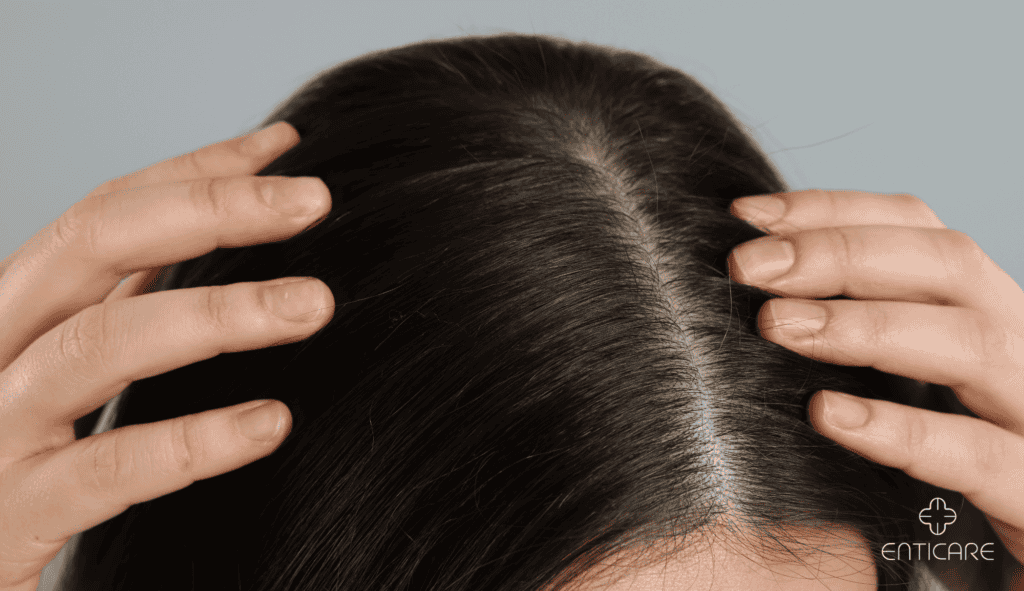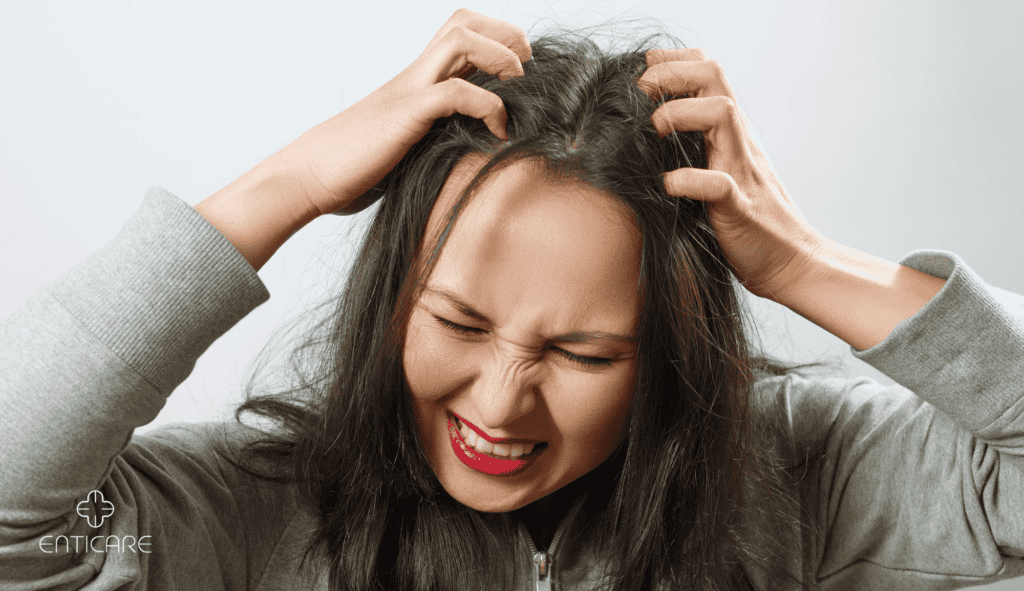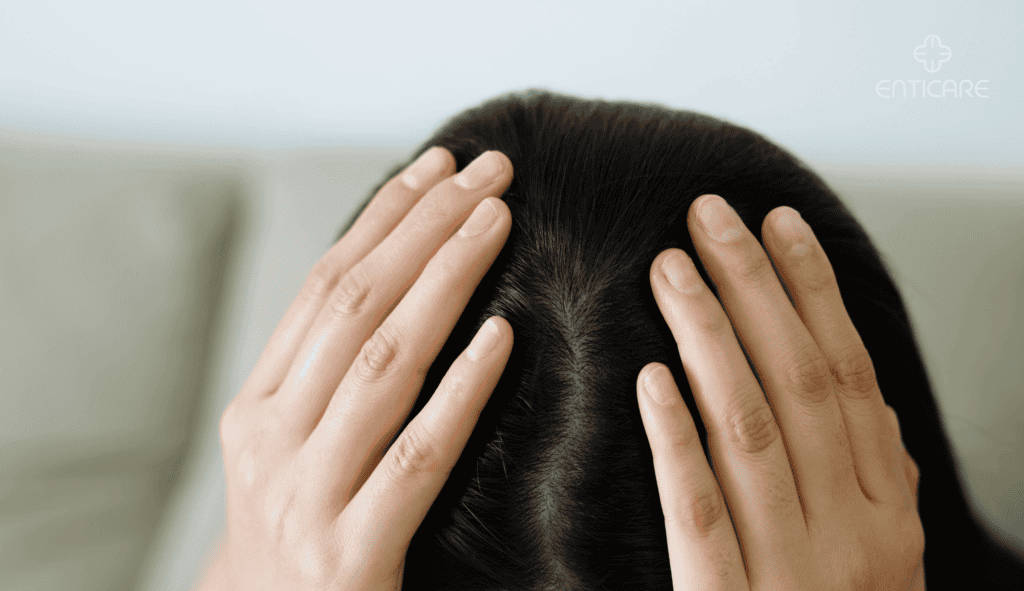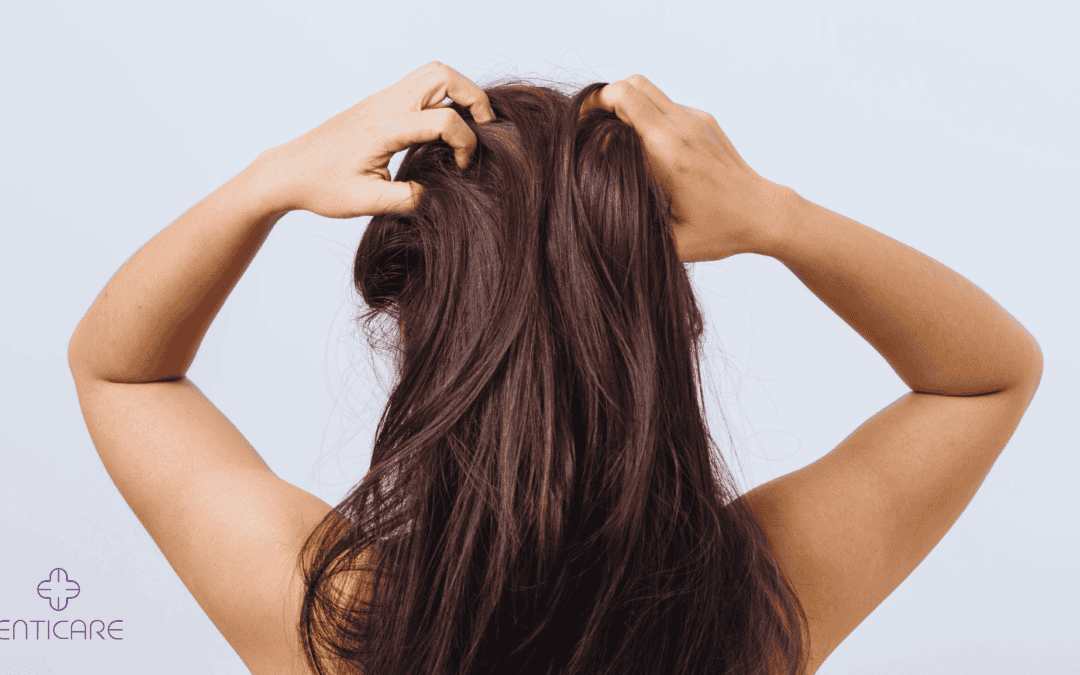An itchy scalp can be frustrating and, at times, a mystery to unravel. While dandruff, dry scalp, or dry skin often causes itchiness, allergies also play a significant role in scalp irritation. Understanding the connection between allergies and an itchy scalp can help you find the right relief. In this blog, we’ll explore how allergies contribute to an itchy scalp, examine common triggers, and discuss natural and medical remedies that can bring comfort.

Understanding Scalp Allergies
The Basics of Scalp Allergies
Scalp allergies occur when your immune system overreacts to substances that may irritate or inflame the skin on your scalp. This reaction can lead to intense itching, redness, swelling, and even scaling. Many people overlook the possibility that their itchy scalp may stem from an allergic reaction.
How Allergic Reactions Affect the Scalp
When the immune system detects allergens, it releases histamines, causing itchiness, inflammation, and other symptoms on the skin, including the scalp. This can sometimes result in an itchy rash. This immune response is similar to the reactions that occur with skin rashes or respiratory allergies.
Types of Scalp Allergies and Scalp Psoriasis
Two main types of allergies can cause itchy scalp: contact dermatitis and airborne allergies. Atopic dermatitis, a chronic type of eczema, can also lead to scalp itchiness. Contact dermatitis occurs when allergens like hair dye or shampoo ingredients directly touch the scalp. Airborne allergies, on the other hand, affect the scalp due to allergens in the air, such as pollen or mold spores.
Common Allergy Triggers for Scalp Itchiness
Hair Care Products
Shampoos, conditioners, and styling products often contain chemicals, preservatives, or fragrances that may cause allergic reactions. Ingredients like parabens, sulfates, and synthetic fragrances commonly trigger scalp allergies. Using a medicated shampoo can help alleviate symptoms caused by these allergens.
Environmental Allergens
Airborne particles such as pollen, dust mites, and mold spores may settle on the scalp, leading to an itchy sensation. Individuals with seasonal allergies are especially prone to scalp irritation during certain times of the year. Environmental allergens can also exacerbate conditions like scalp psoriasis.
Food Allergies
Believe it or not, food allergies can sometimes manifest as itchy scalp and skin rashes. Dairy, gluten, and shellfish, among others, might trigger allergic responses, especially if someone has a known food sensitivity. In severe cases, these allergic reactions can also lead to hair loss.
Explore more about the link between allergies and skin reactions.

Identifying Allergy-Related Symptoms
Persistent Itching and Redness
Allergy-related itchiness is often persistent and can lead to redness or swelling if left untreated. Unlike dandruff, which usually involves flaky skin, allergic reactions may cause patches of red, inflamed, and scaly skin.
Hives and Swelling
Hives, or small, raised, red welts on the scalp, indicate an allergic reaction. Swelling around the hairline or scalp often accompanies hives, indicating that the body is responding to an allergen. It’s also important to rule out head lice, which can cause similar symptoms.
Flaking and Scaling
While dandruff also causes flaking, allergy-related flakes are usually smaller and may appear more evenly across the scalp. Scalp allergy flakes may be accompanied by other symptoms, such as pain or sensitivity. Seborrheic dermatitis is another common cause of flaking and scaling on the scalp.
Home Remedies for Allergy-Related Scalp Itch
Apple Cider Vinegar Rinse
An apple cider vinegar rinse can reduce inflammation and itching caused by allergies. Mix equal parts of water and apple cider vinegar, apply it to the scalp, and let it sit for a few minutes before rinsing. The antibacterial properties of vinegar help combat irritation. Additionally, using a dandruff shampoo can help manage symptoms of an itchy scalp.
Aloe Vera Gel
Aloe vera soothes itchy, inflamed skin and has anti-inflammatory properties. Applying aloe vera gel directly to the scalp can reduce itchiness and provide relief. Use fresh aloe vera for the best results, but store-bought gels without added chemicals can also work.
Cold Compress
For immediate relief, a cold compress helps reduce inflammation and numb itching on the scalp. Wrap ice packs in a soft towel and apply it to the affected area for a few minutes, repeating as needed.
Learn more about natural remedies for itchy skin.
Medical Treatments for Scalp Allergies
Over-the-Counter Antihistamines
Antihistamines block the release of histamine, which the body produces in response to allergens. OTC antihistamines can reduce itching and swelling on the scalp. Oral options like cetirizine and loratadine or topical creams containing antihistamines can help manage symptoms. Medicated shampoos are also effective in treating scalp conditions caused by allergies.
Topical Steroids
For more severe cases, doctors may recommend corticosteroid creams or ointments to relieve inflammation. Steroids work quickly to reduce swelling and irritation but should only be used under medical supervision due to potential side effects with prolonged use. The treatment for an itchy scalp depends on the underlying cause, so it’s important to consult a healthcare provider.
Prescription Allergy Medications
For individuals who experience chronic scalp allergies, prescription medications might be necessary. Options may include stronger antihistamines or allergy shots to help the immune system tolerate allergens better over time. In cases where a fungal infection affects the hair follicle, prescription antifungal medications may be necessary.

Seek Professional Help
When to See a Doctor
If you notice persistent itching, redness, or swelling on your scalp that doesn’t respond to home remedies, consult an allergy specialist. Chronic itching may indicate a deeper allergic reaction or sensitivity requiring professional intervention.
Allergy Testing for Accurate Diagnosis
Doctors can perform allergy tests to identify specific triggers, whether they are contact allergens from hair care products or airborne allergens. Patch tests, skin prick tests, and blood tests can pinpoint the allergens causing your symptoms, allowing for more targeted treatment.
Personalized Treatment Plans
A customized treatment plan helps manage symptoms effectively and prevents future outbreaks. Medical professionals can offer specific strategies to reduce exposure to allergens and recommend the best combination of medications or lifestyle changes for long-term relief.
Conclusion
Dealing with an itchy scalp caused by allergies can be uncomfortable and disruptive, but knowing the root cause can open up effective treatment options. Whether environmental allergens or contact irritants lead to your symptoms, taking steps toward understanding and treating scalp allergies can help you find relief.
If you struggle with a persistent itchy scalp, consider consulting with a specialist for personalized care and solutions. Schedule an appointment with one of our experienced providers at Enticare Allergy & ENT to start your journey toward relief and better scalp health.

